Queer Comic Art Featured on San Francisco Bus Kiosks
| 01/15/21
By continuing to use our site, you agree to our Privacy Policy and Terms of Use.
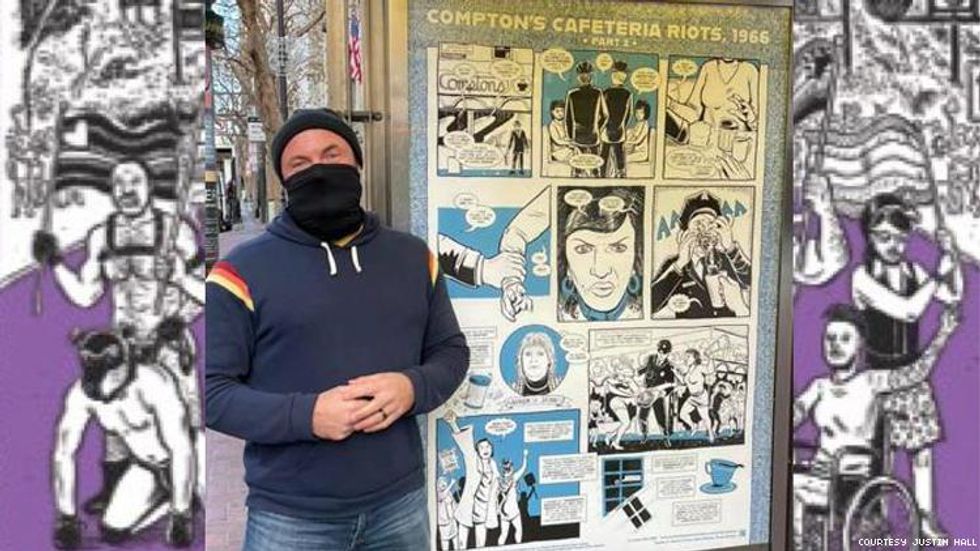
Every year since 1992, the San Francisco Arts Commission displays the work of artists in the Art on Market Street Kiosk Poster Series installed in bus kiosks on Market Street between 8th Street and the Embarcadero. On display through February is the work of award-winning gay comic artist Justin Hall (pictured), the first Fullbright Scholar in Comics and editor of the queer comics history anthology, No Straight Lines.
“Marching Toward Pride” is made up of 12 posters, representing six pivotal moments in San Francisco’s LGBTQ history. The poster-sized comic pages feature images of critical people and draw dialogue from the GLBT Historical Society and San Francisco Public Library archives. Hall used single-color images to reference the original Pride rainbow flag's colors.
“Justin Hall's series amplifies six important moments in San Francisco's LGBTQ history, and with the medium of comics, makes these histories compelling and relatable," acting director of cultural affairs Denise Bradley-Tyson said in a statement to the press. “While these stories are just a few among countless other significant moments, Hall's work celebrates the decades of struggle, resistance, strength and triumph in the City's LGBTQ community.”
Can't make it to San Francisco? Check out the complete poster series below.
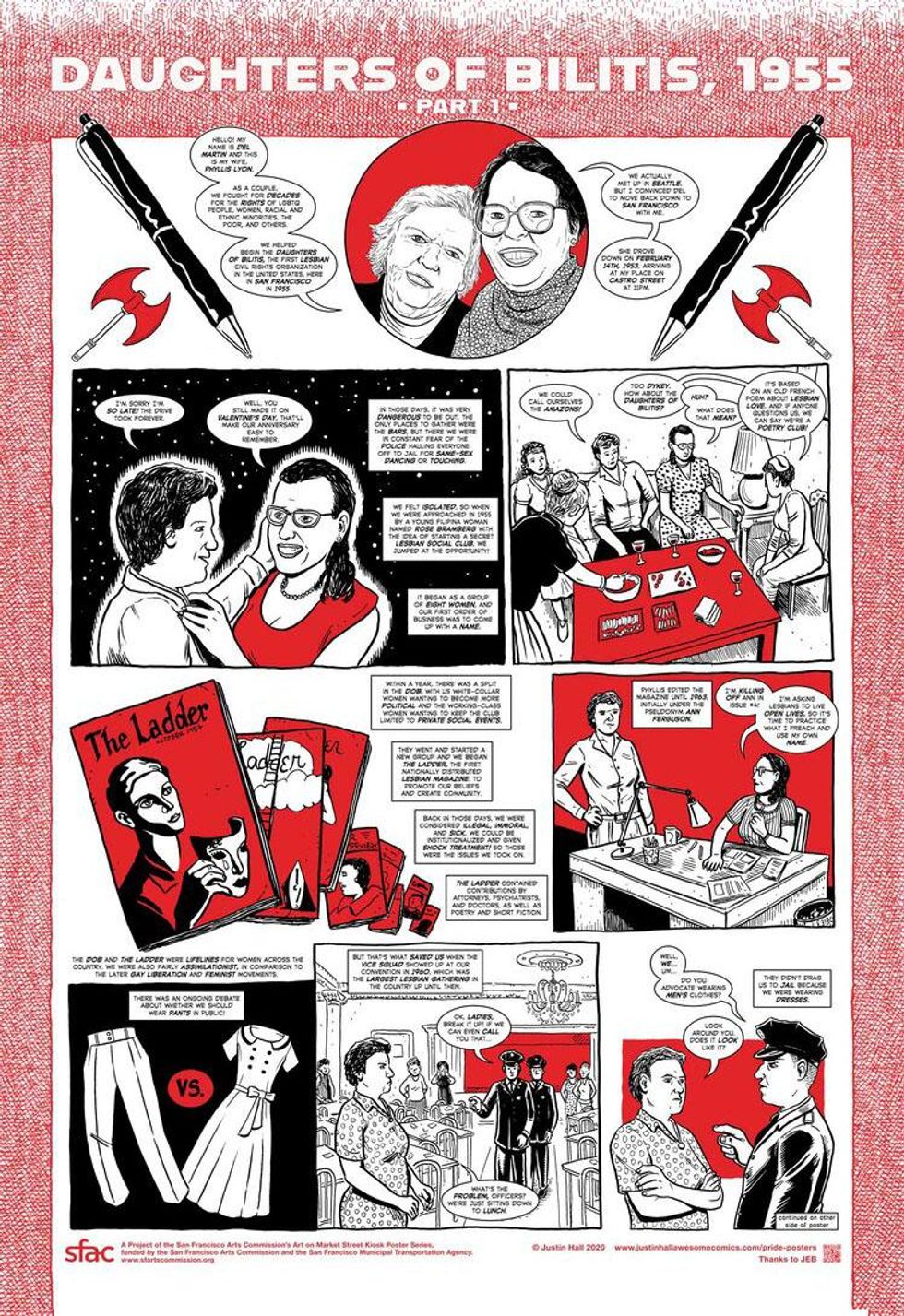
In red to represent the top color of the rainbow flag, are two posters representing the founding of the Daughters of Bilitis in 1955 from the point of view of founders Del Martin and Phyllis Lyon. As Hall notes on his site, the nation's first lesbian civil-rights organization, began as a secret social club created by Rosealie “Rose” Bramberg and her partner Rosemary Sliepen. The club's working-class couples wanted the group to remain a secret social club, but the white-collar couples pushed to make it a public political group. This, of course, brings up important issues of both class and race. Rose was Filipina and worked in a brush factory, while Del and Phyllis were white journalists. The dangers for lesbians were greater for women of color and working-class women in the mid-1950s.
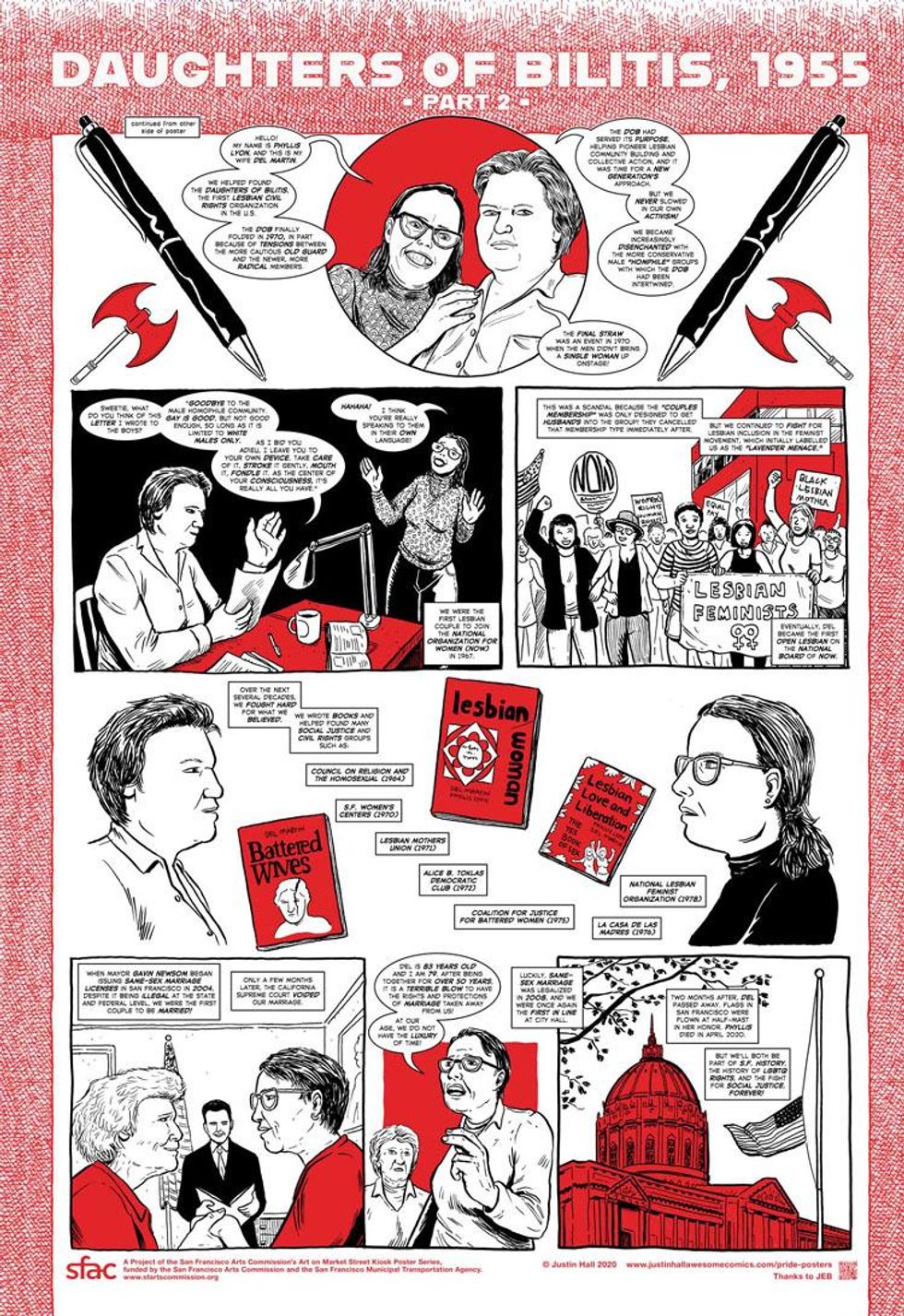
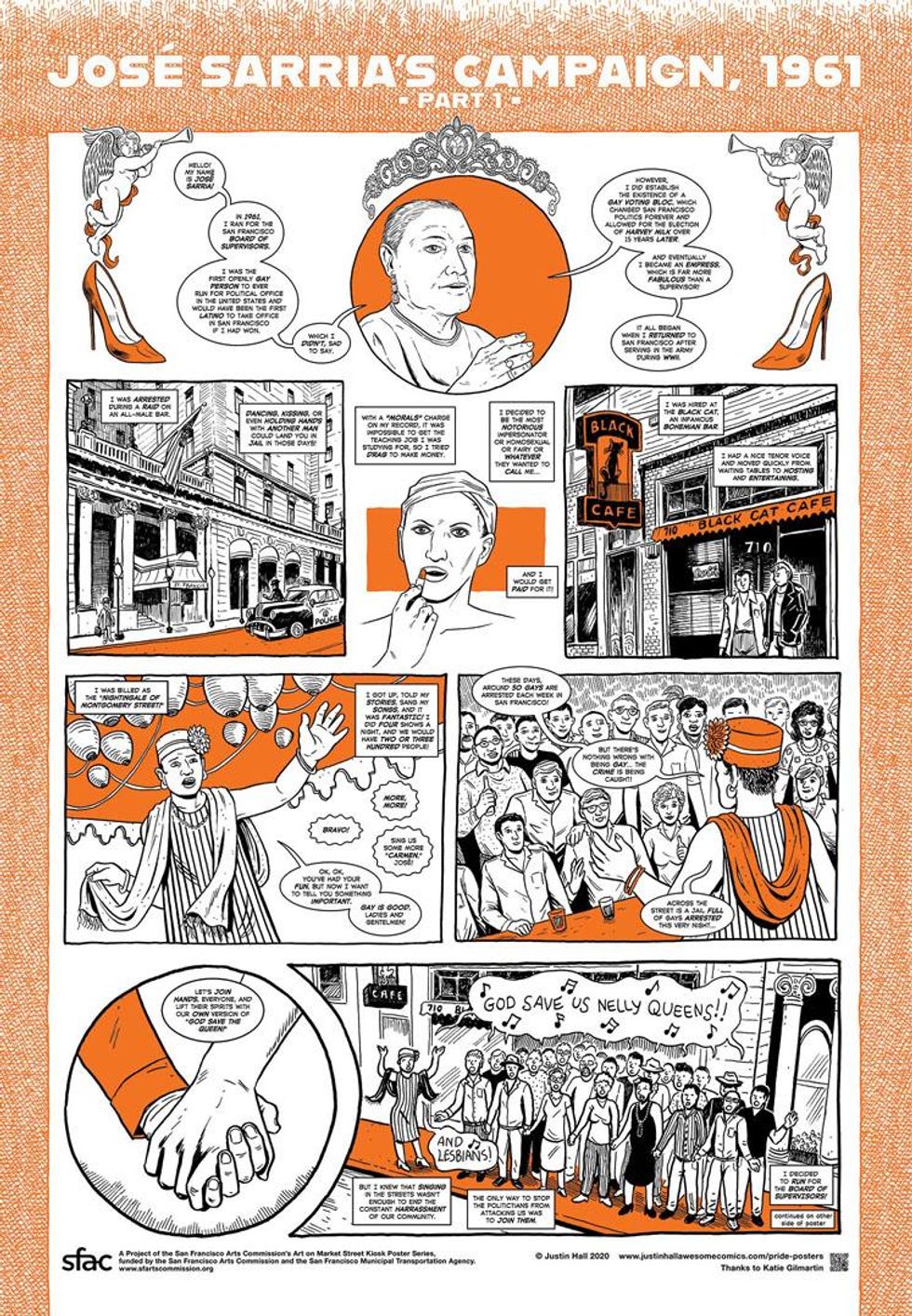
The orange posters reflect the 1961 campaign of José Sarria for San Francisco Board of Supervisors, the first time an out queer person ran for political office in the U.S., according to Hall's research. Sarria also founded the Imperial Court and worked as drag queen hostess at the Black Cat bar.
"I took care to capture Sarria’s voice in his narration," Hall writes on his site. "I read interviews with him (check out Nan Alamilla Boyd’s in her Wide Open Town: A Queer History of San Francisco to 1965) and pulled as many direct quotes and aphorisms (he had many!) as I could."
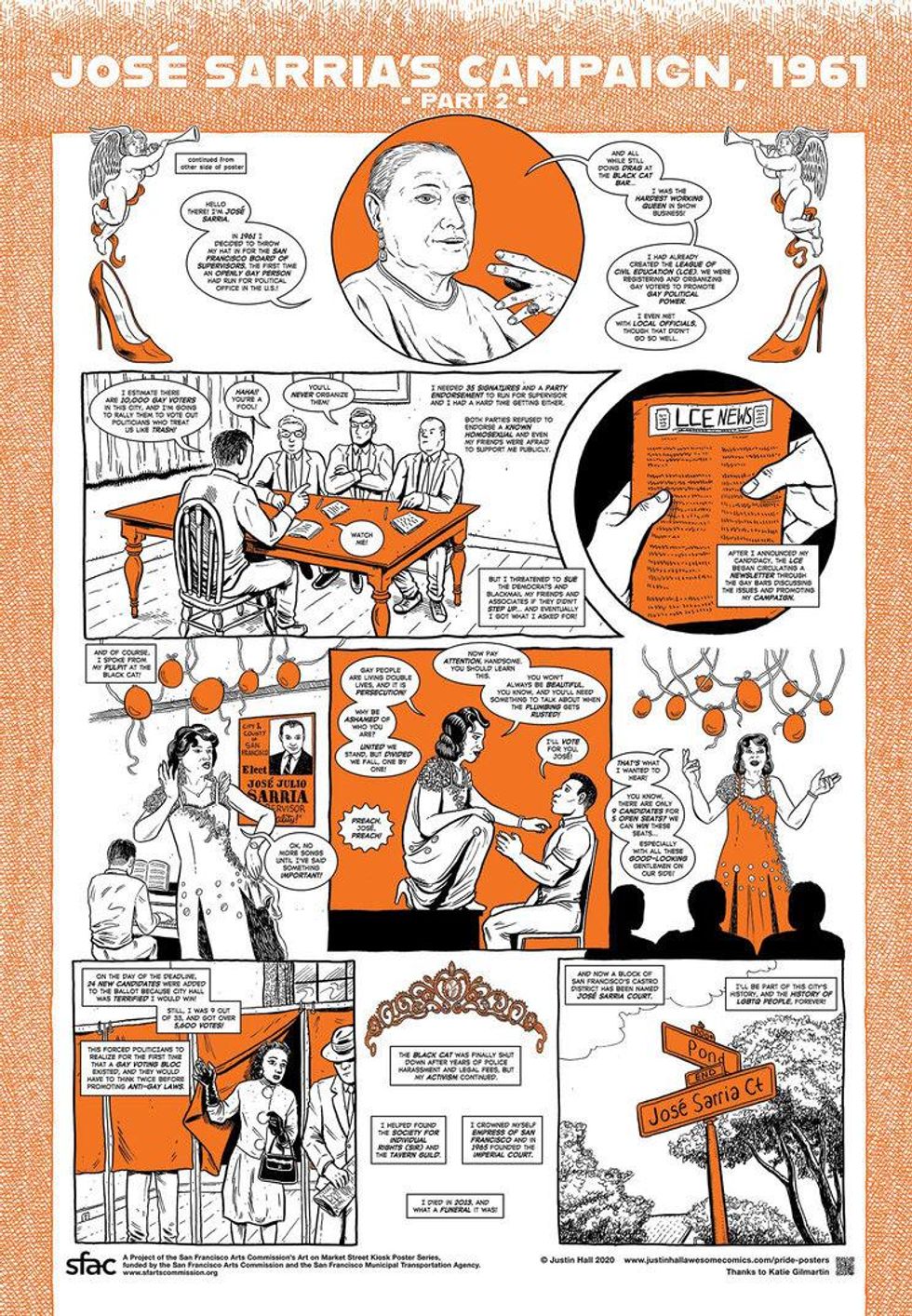
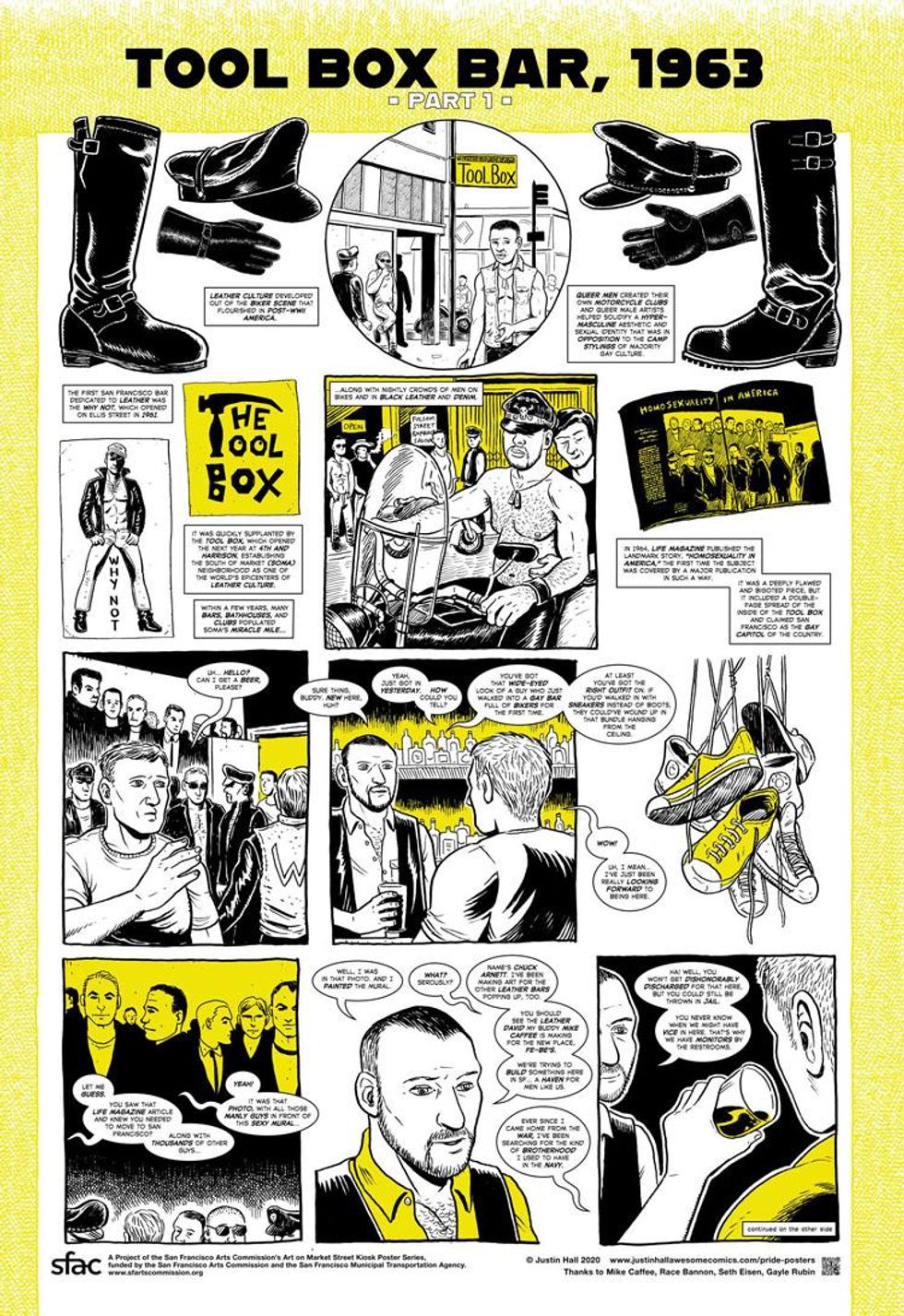
The Tool Box Bar was the first leather bar in San Francisco’s South of Market (SOMA) district and the beginnings of leather culture in the Bay Area. The bar was made famous when it was covered in Time Life Magazine in 1964. Hall notes on his site that the bar actually opened in 1962, but he had read that the date was 1963. He writes that he "was corrected by Gayle Rubin, who is the greatest historian of the early leather scene. I changed the date in the body of the poster, but unfortunately, I forgot to do so in the title."
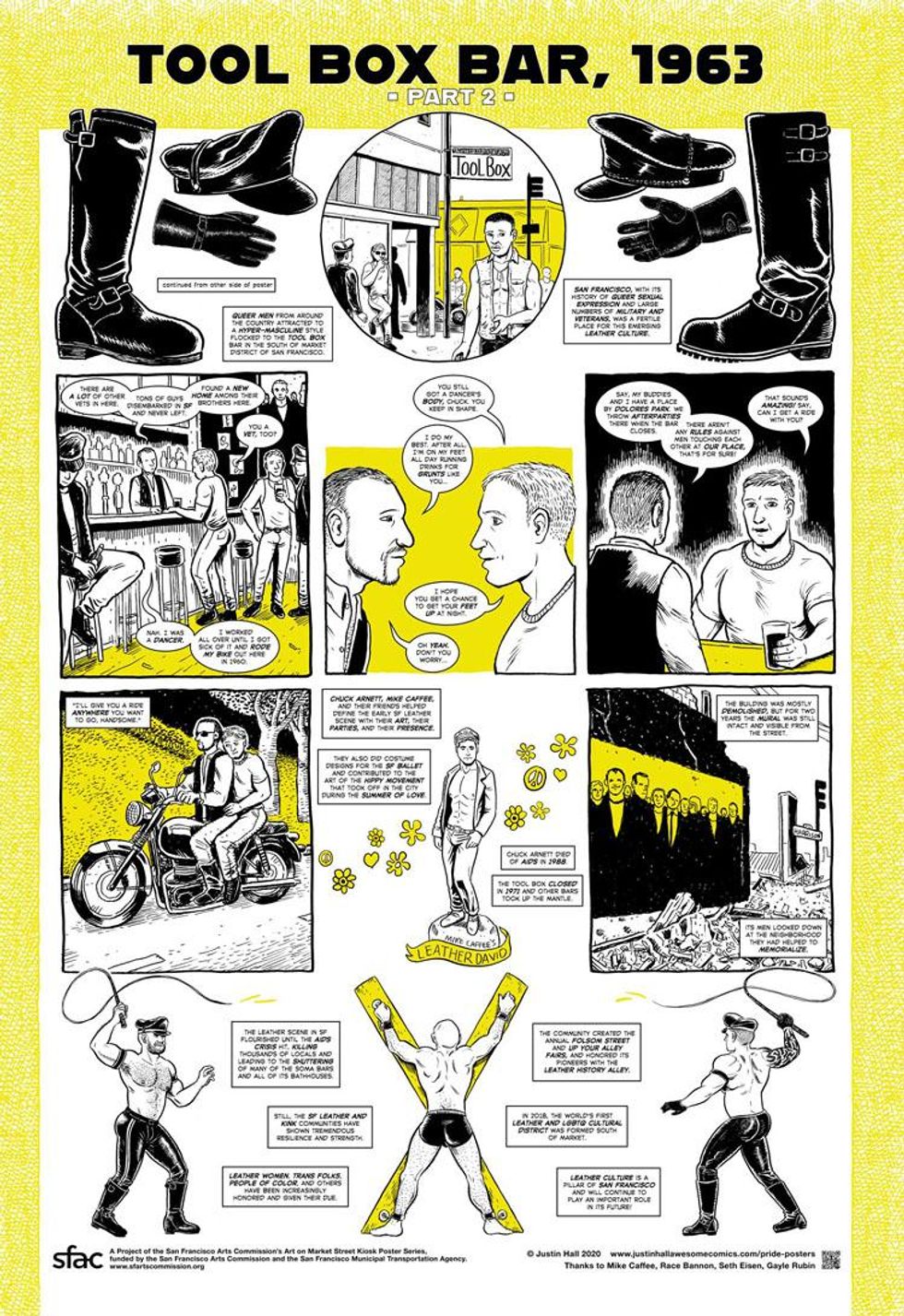
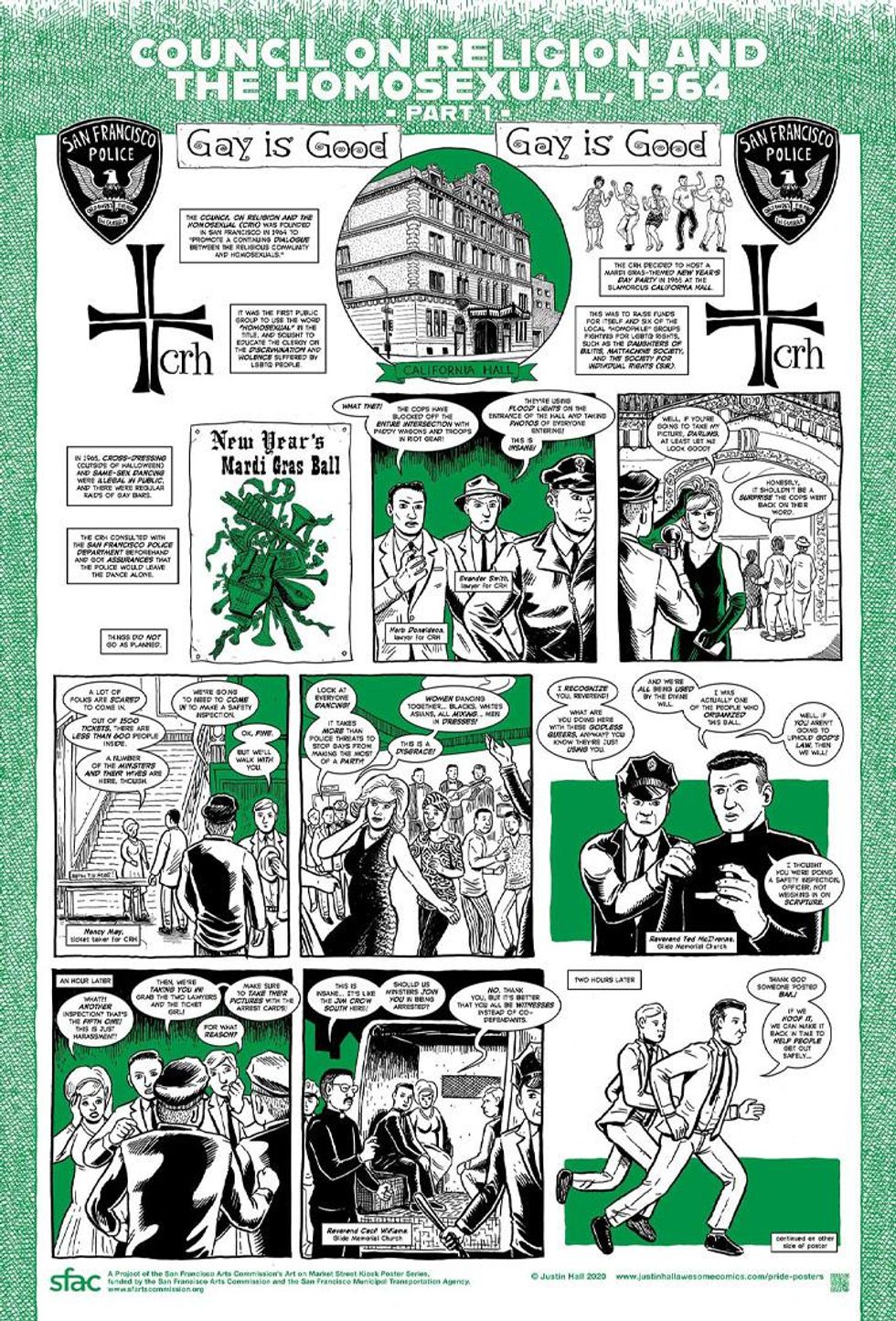
The green posters illustrate the creation of the Council on Religion and the Homosexual in 1964 and its New Year’s Day party that led to a police raid but which ended as Hall writes, with "the first moment in the US that public opinion turned against a police force harassing, oppressing, and brutalizing LGBTQ people with impunity. It was the first time the ACLU came to the defense of queer people, and one could argue that this was the moment when queer rights began in a significant way to be recognized as human rights in the US."
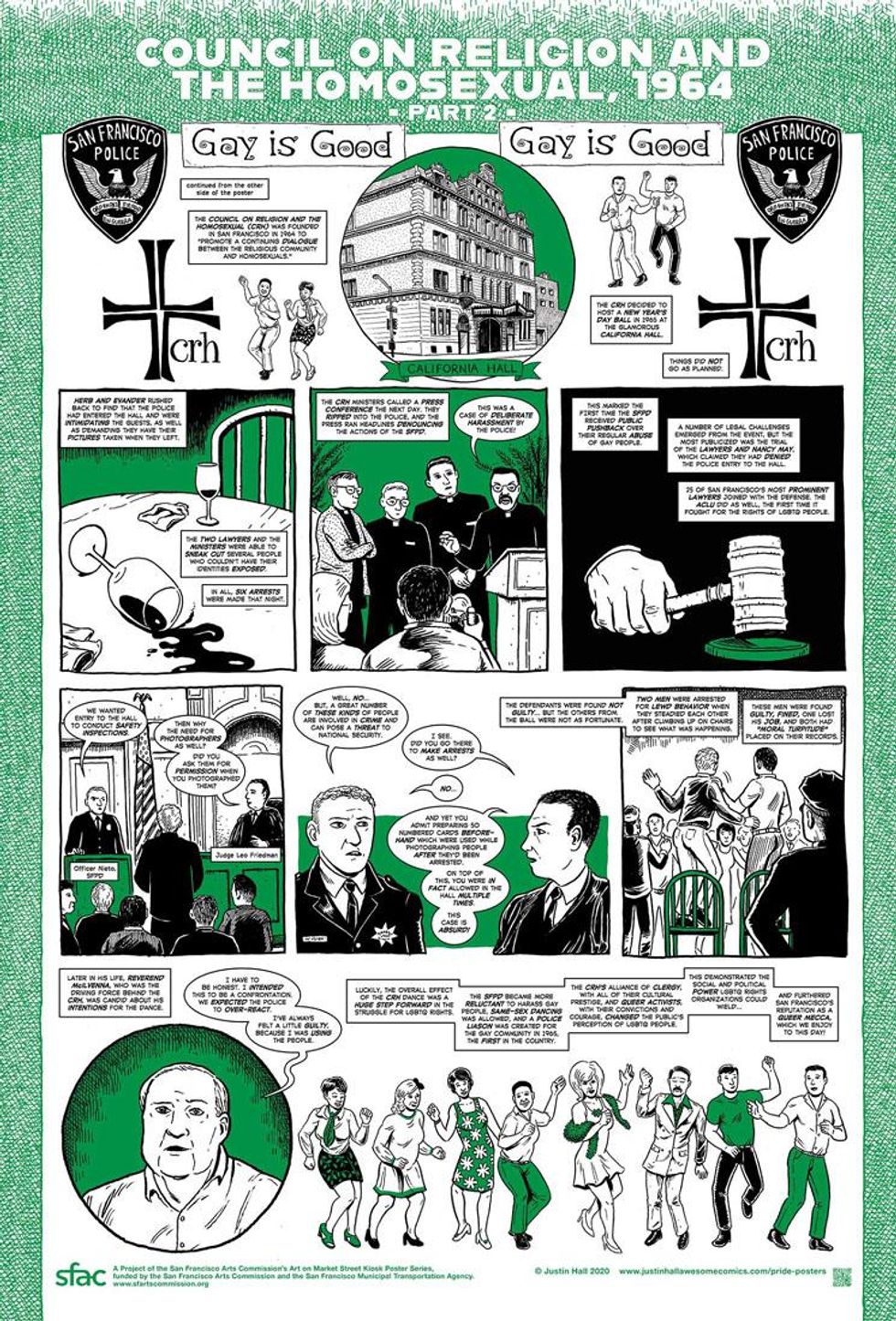
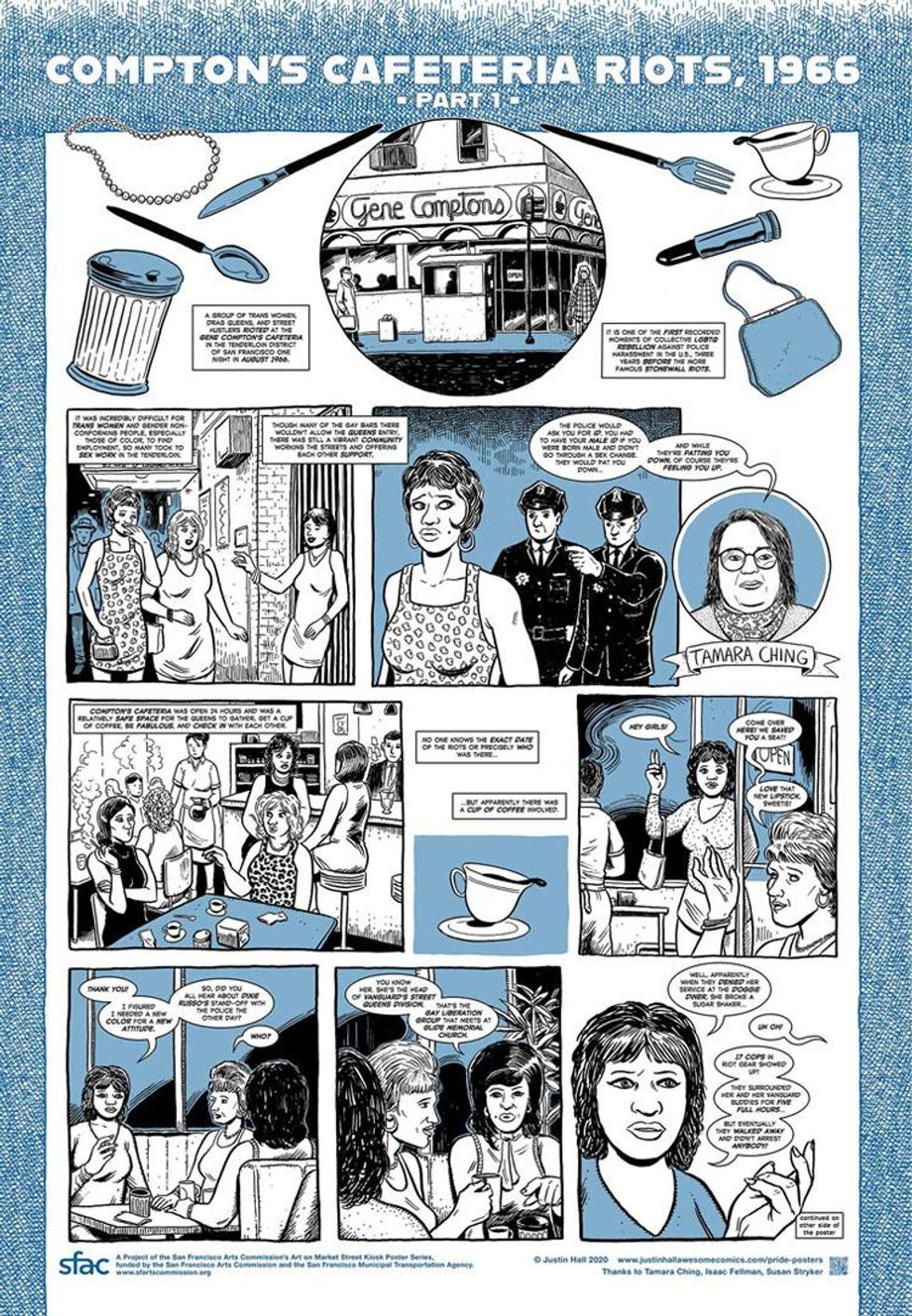
The blue posters illustrate the Compton Cafeteria riots that helped launch the modern trans rights movement and galvanized the larger LGBTQ+ civil-rights struggle three years before the Stonewall Riots in New York.
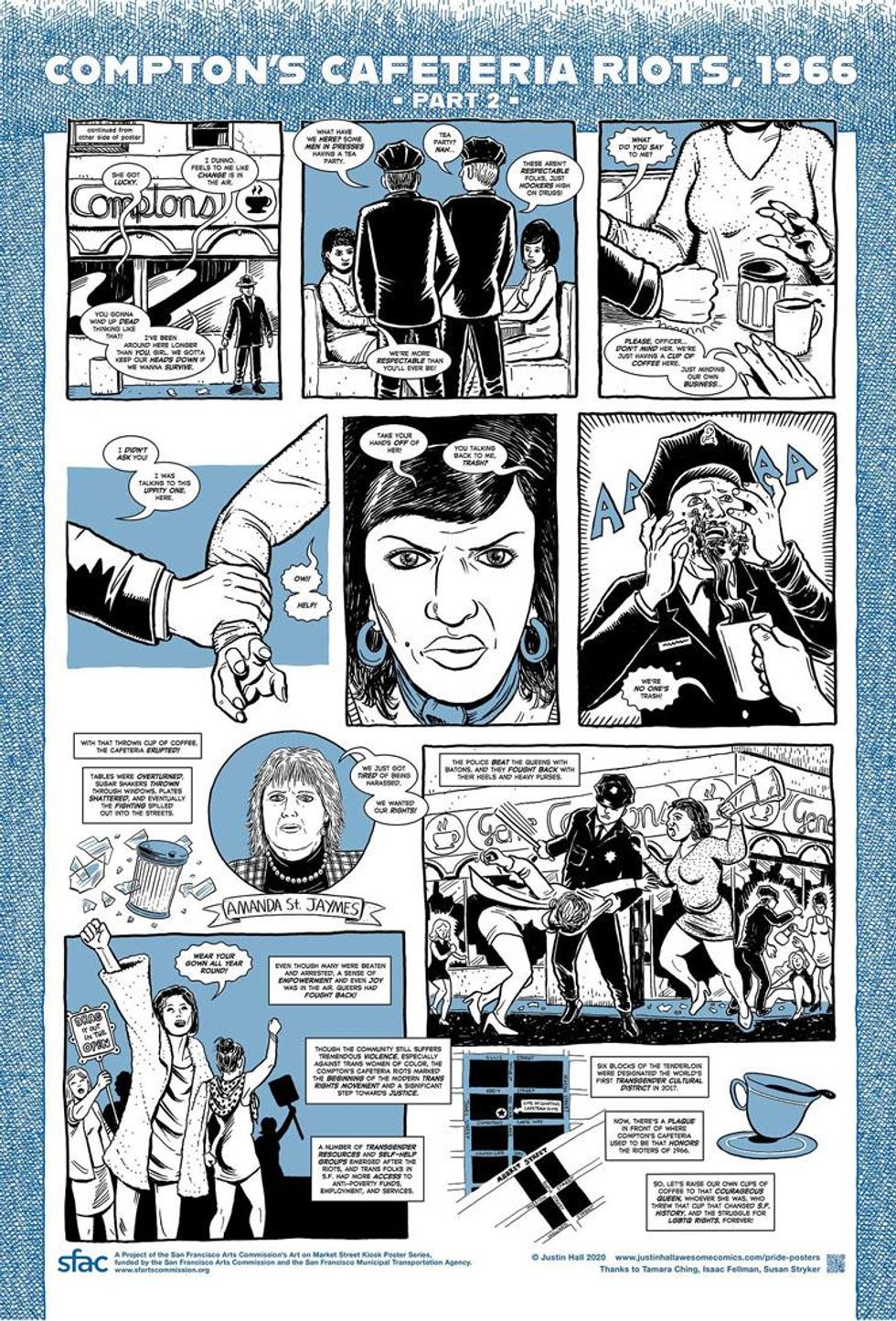
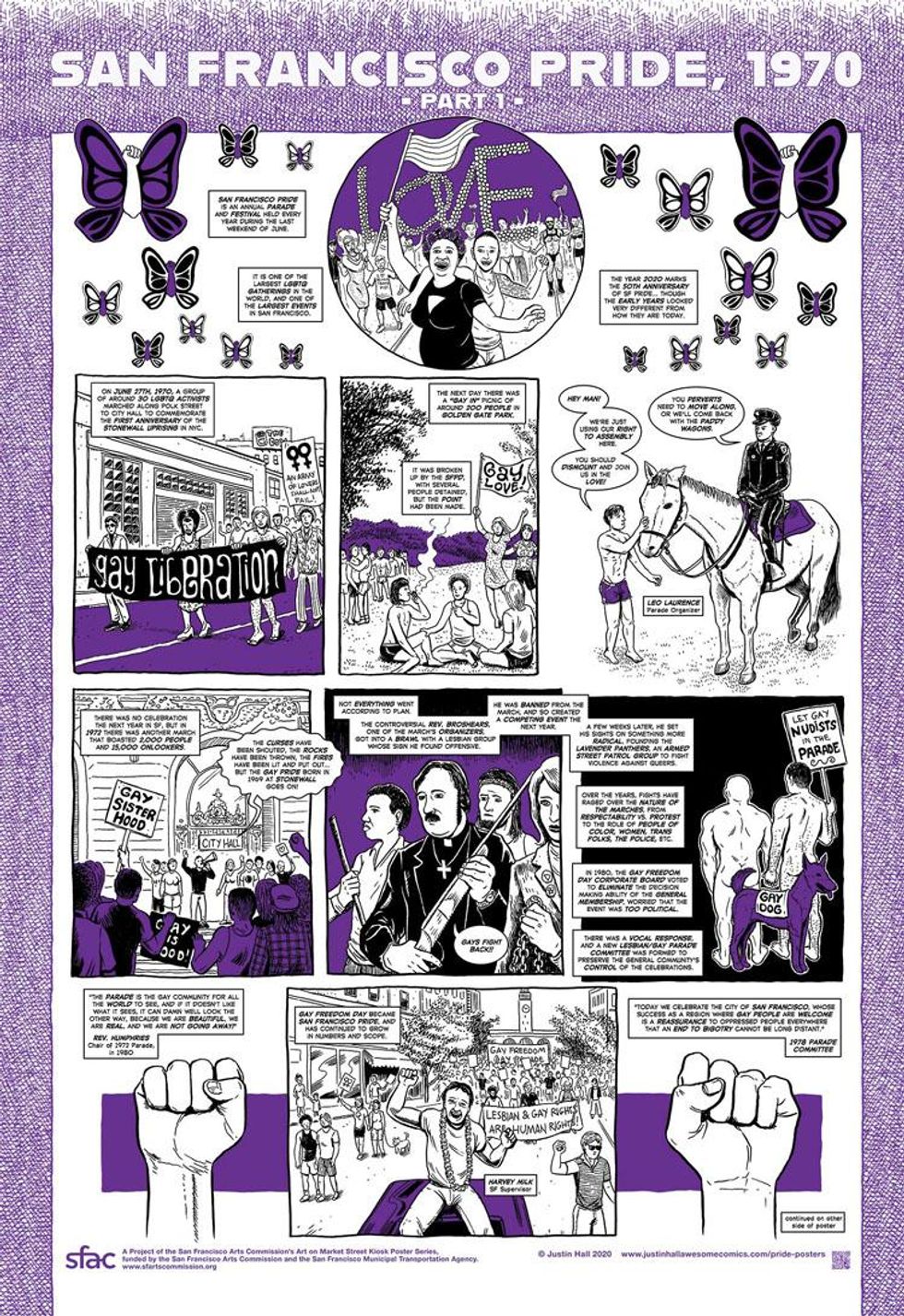
San Francisco Pride is the focus of the purple posters, with the first representing the origins of the event, and the second reflecting the march in its current form, along with inset panels honoring various Grand Marshals.
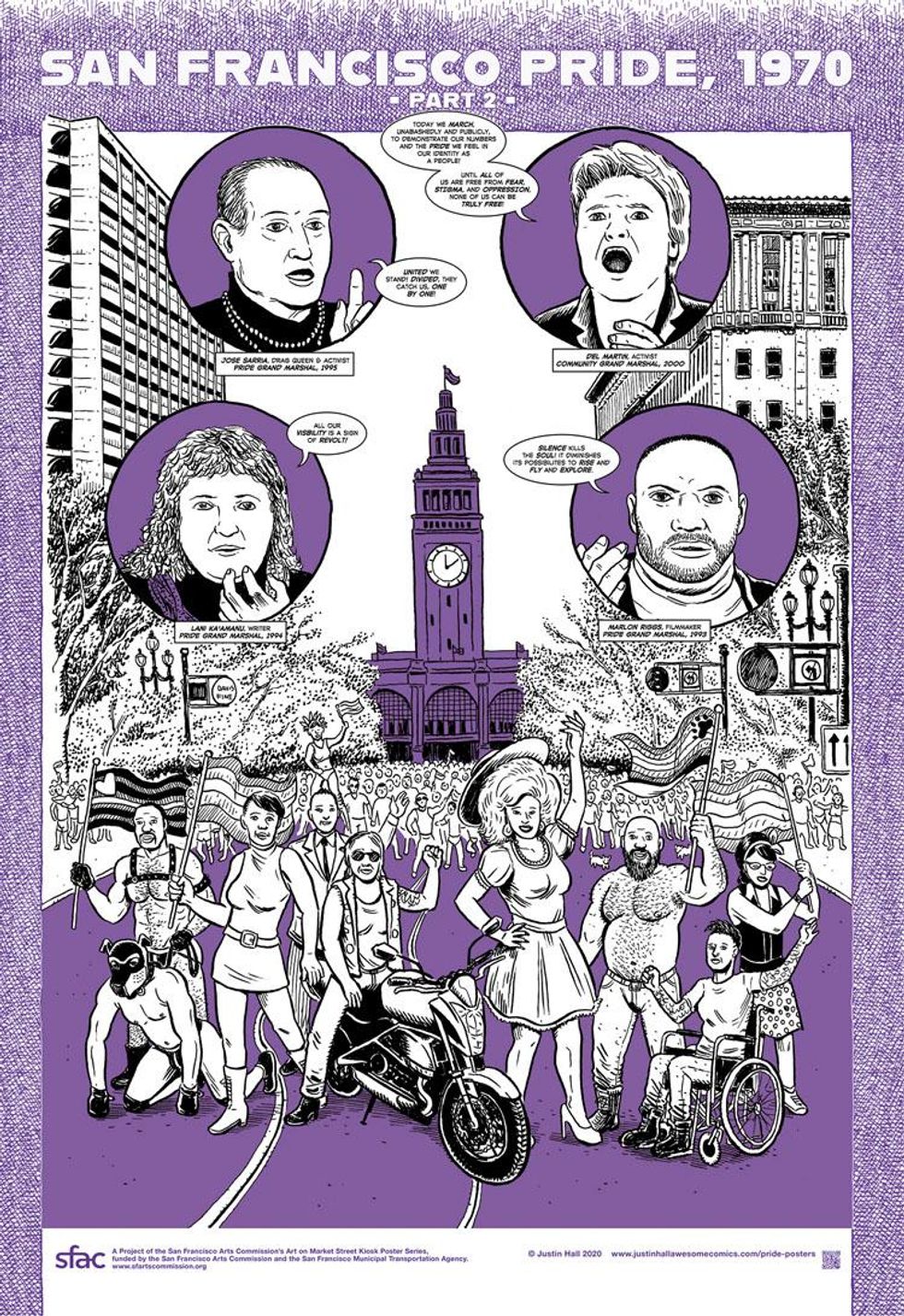
Find more about Justin Hall's work at justinhallawesomecomics.com.